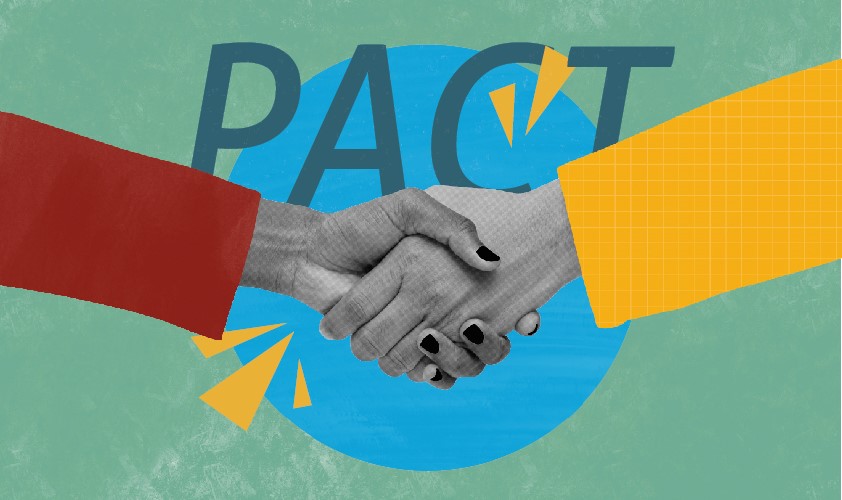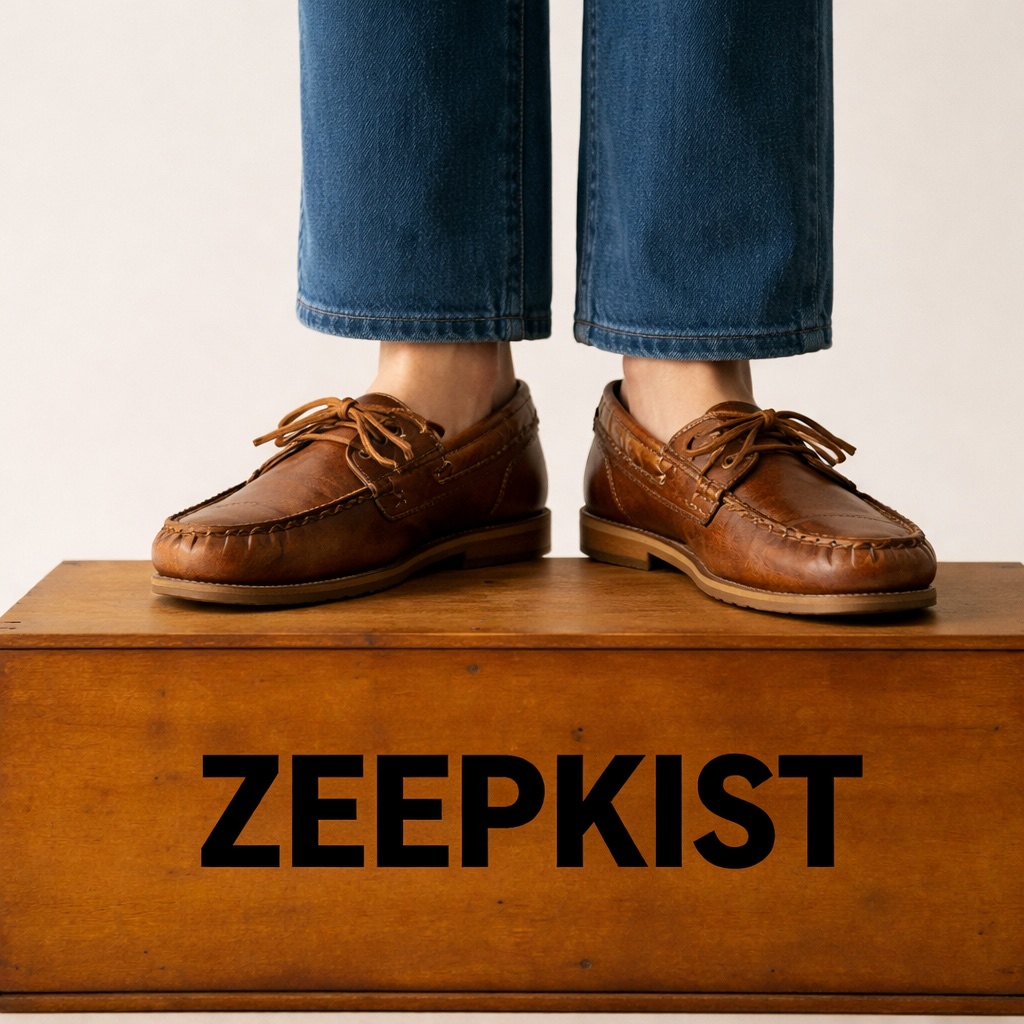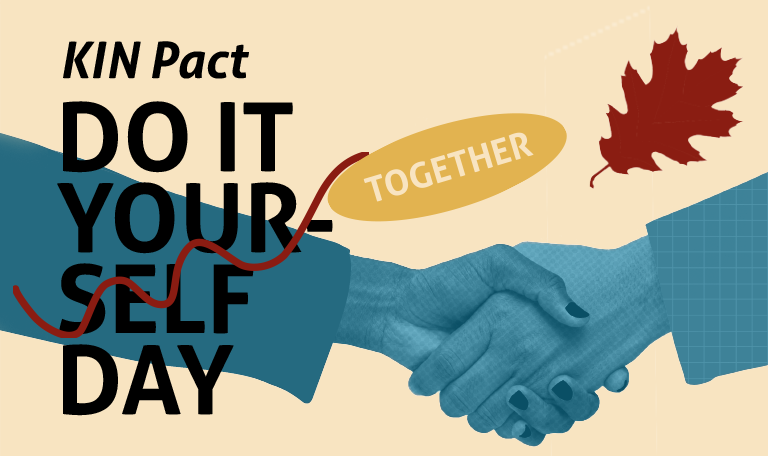Pact
In the KIN Pact, you will collaborate with other researchers and climate professionals from the field on your climate or transition challenges.
KIN Pact: moving forward together
Are you a researcher, policy officer or climate professional at a social organisation, and do your best plans remain on the shelf? Or do you work on sustainability within the government or the business community, but often lack the right knowledge? The Netherlands is bursting with accelerators like you. People who want to move forward with the transition, but encounter barriers. The KIN Pact is there to help you do your job better, so that you can really make a difference.
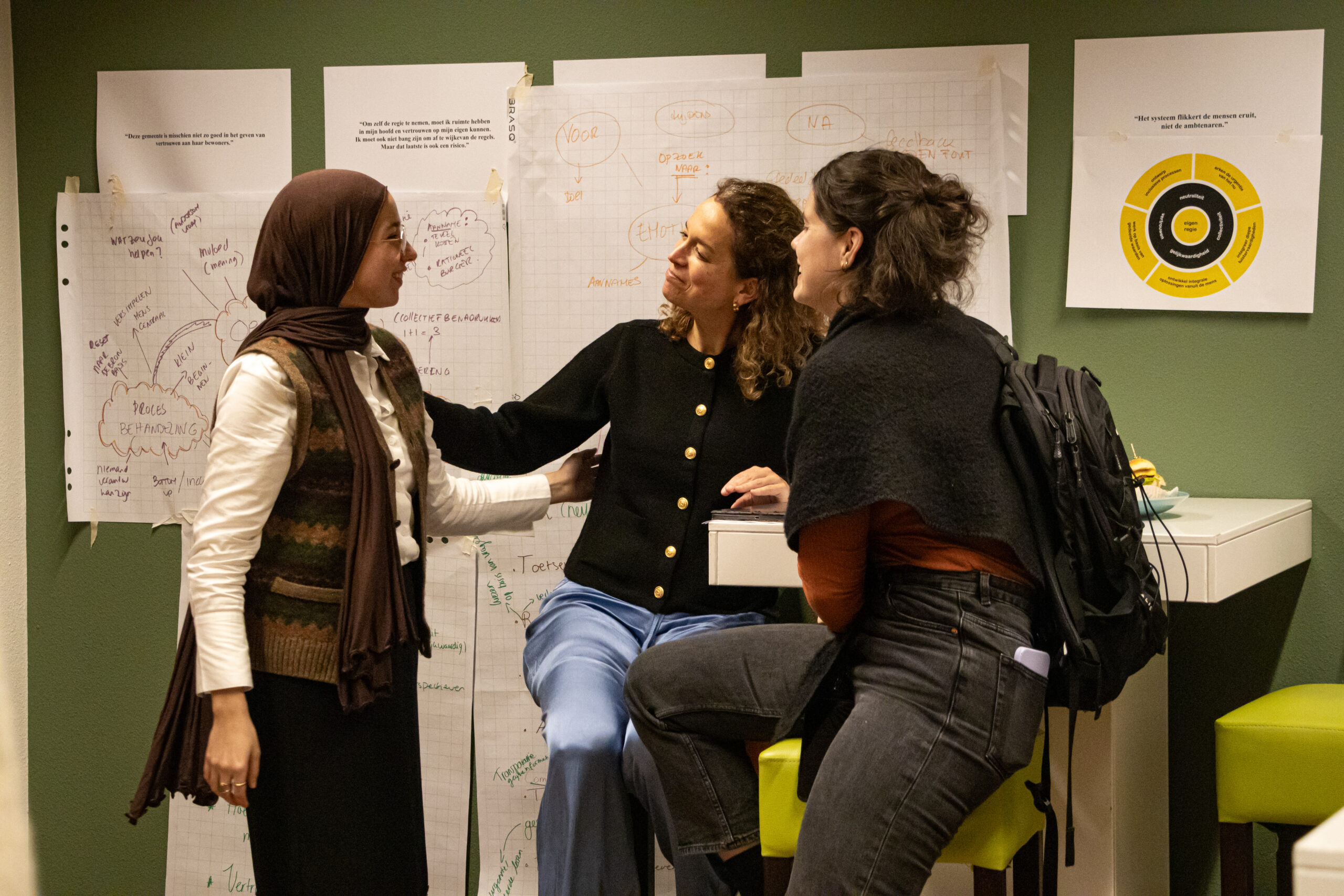
How does the KIN Pact work?
The Pact operates from the undercurrent. Our ambition is to work with you to identify the urgent and relevant issues in society so that you can achieve your climate goals. We see better sharing and applying knowledge from research and practice as an important part of this. As well as collaborating and taking action together!
What does the Pact offer?
The Pact supports you as a (practical) researcher or climate professional in your work on (climate) and system transitions. By facilitating cooperation and providing practical support. Whether you are affiliated with a (knowledge) institution or organisation or participate in a personal capacity. Because together, and by doing, we can make faster progress. Within the Pact, members work in working groups on various climate and transition issues.
What does membership mean?
Your Pact pledge
The KIN Pact is a mission-driven community with shared values. To reinforce this, we ask all members of the Pact to draw up a personal pledge and sign the core values of the Pact. In the pledge, you can briefly explain why you or your organisation wants to join the Pact. As a member, you can also view the pledges of other members.
How can you become a Pact member?
Step 1
Step 2
Step 3
Step 4
Step 5
Register using the form by pressing the button below. You can register as an individual or as a team, department or organisation.
You will receive immediate confirmation by email. Welcome to the Pact aspirant!
We will contact you within five working days for a brief introduction and to confirm your membership. During this conversation, we will tell you more about the Pact core values and the pledge.
After the introduction, it is time to draw up your personal pledge and sign the core values of the Pact, possibly together with your team. We will send you a template for this. Ready? Then send the document back to us.
Welcome to the Pact!
You now have access to our members’ area with an overview of the Pact network and will receive the Pact newsletter with events.
Do you have any questions?
Curious whether joining the Pact is the right fit for you or your organisation? Sem Roefs, Pact Community Manager, is happy to talk it through with you.
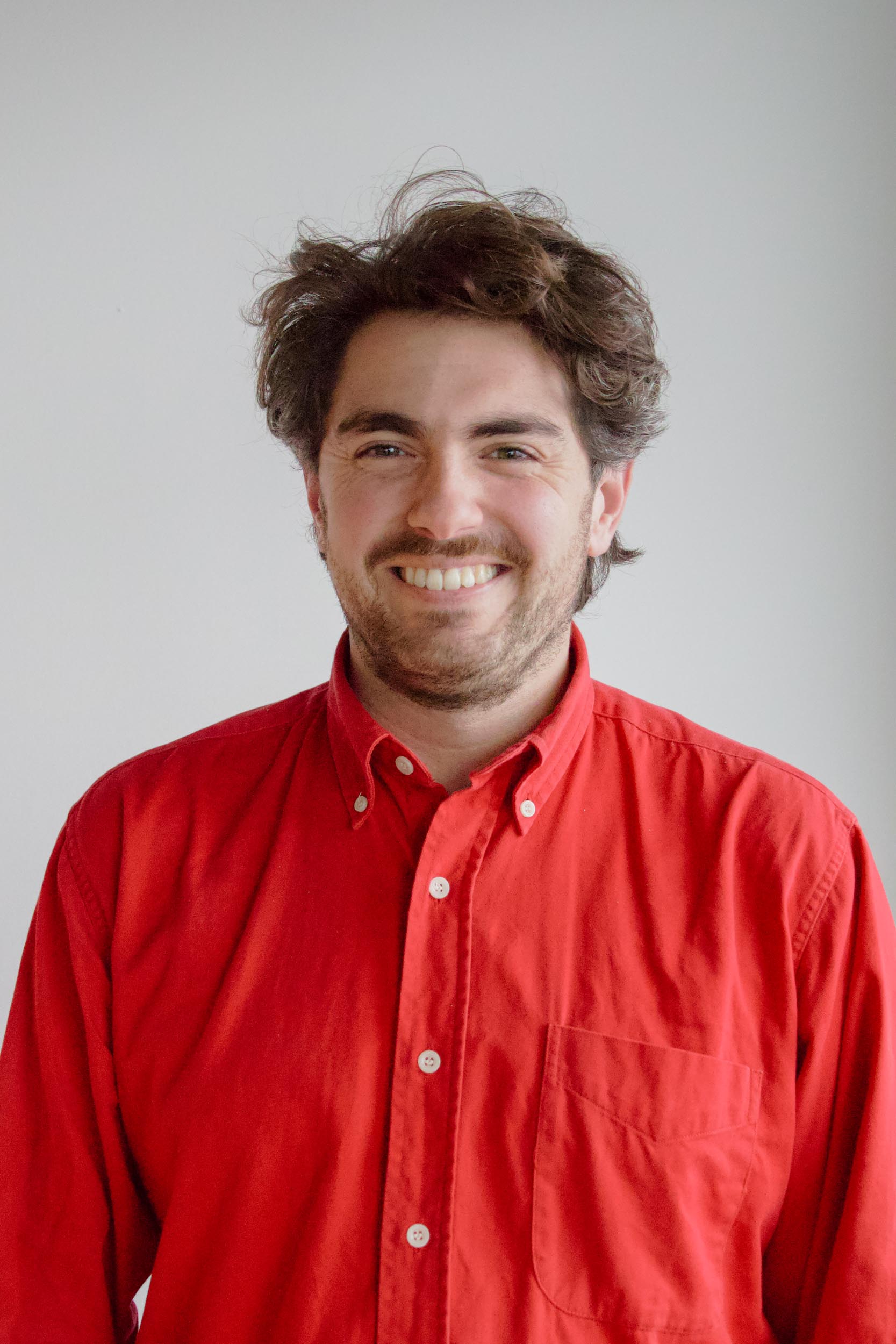
How do the working groups operate?
As a member of the KIN Pact, you will work in working groups with the shared knowledge and experience of people from research and practice to take concrete steps towards your climate goals and challenges. You can become a member as an individual, as a team or with your entire department, faculty, research group or organisation.
Demand-driven themes
Working groups within the KIN Pact are formed around an issue or demand-driven theme. If you identify a need within your working group or within the Pact, you can organise activities or a working group as a member. At the KIN Pact, we look for things that are not yet happening. Working groups consist of active members. This means that all members are members of the Pact.
As a working group, you will meet at least once for a kick-off meeting. The purpose of this meeting is to determine the theme and objective of the working group. This could be setting up meetings or producing knowledge products or communication tools. The KIN will then support your working group, for example with practical help, a network, useful tools and resources, and a small support budget.
Joining a working group
Are you interested in joining an existing working group? This may be possible, depending on the phase a particular working group is in. Please contact the contact person listed on the working group page.
How do you start a working group?
Pact members can also start their own working group if it fits with the KIN’s mission and goals. We do think it’s important that your working group follows some of the KIN Pact’s principles, like being demand-driven, transdisciplinary, and, would it even happen without the KIN Pact? Want to start your own working group? We’d love to explore the possibilities with you. To do so, please contact one of the KIN Pact team members using the contact details below.
How does the KIN support?
KIN thinks along with you and provides practical assistance to you and your working group. We can help with organising meetings and providing various facilities. We also help you find new ways of financing to promote new collaborations. We can also help you find suitable subsidies or refer you to other networks or parties that are involved in this.
Meetings & events
Become a member
Are you a researcher or do you work as a policy officer or climate professional for the government or a social organisation, and would you like to accelerate the (climate) transition? The Pact is here to help you do your job better, so that you can make a real difference.
How is the Pact organized?
Curious about how the Pact is organised, how governance is arranged, and who is involved behind the scenes? We would be happy to tell you more about it.
